
February 21-22, 2024 | Virtual
This page contains a list of resources related to the 2024 GC Data Conference. It includes presentations from keynote speakers, and relevant events, print, and opportunities to get involved with the Government of Canada’s data community.
On this page
- GC Data Conference 2024 presentations
- Events and opportunities to get involved
- Books, reports, and articles
- Learning
GC Data Conference 2024 presentations
- Additional presentations from the GC Data Conference 2024 will be uploaded here in the coming days.
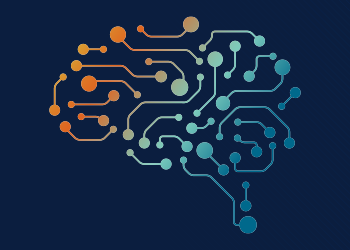
- Virtual lightning round – Joshua Turner (download link)
Presentation from Joshua Turner during the “Virtual lightning round” session at the 2024 GC Data Conference.

- Virtual lightning round – Ryan Klomp (download link)
Presentation from Ryan Klomp during the “Virtual lightning round” session at the 2024 GC Data Conference. The presentation is also available in French.

- Virtual lightning round – Roksana Sheikholmolouki (download link)
Presentation from Roksana Sheikholmolouki during the “Virtual lightning round” session at the 2024 GC Data Conference.

- Government of Canada Data Story videos
From GC Data Community partners: Learn about data in action across the GC.
Events and opportunities to get involved
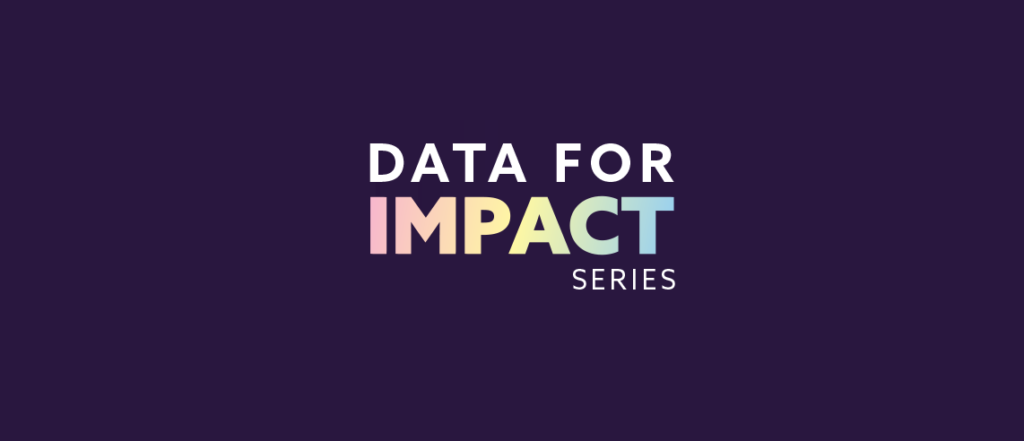
- Data for Impact Series: Accessing and Sharing Data
March 12, 1:30 to 3:00 pm (ET). From the GC Data Community: This sixth event in the series will highlight case studies on overcoming barriers to data sharing between federal organizations and beyond, and focus on the development of systems that integrate the people, tools and processes required to scale up the sharing of data.

- Artificial Intelligence Series: The Impacts of Public Policy on Artificial Intelligence and the Healthcare Sector
March 11, 1:30 to 3:00 pm (ET). This event will unpack a range of legal and public policy implications posed by AI technologies and examine how Canada’s complex ecosystem for healthcare, which is regulated across multiple levels of government, can explore and adopt ethical AI technologies and practices.
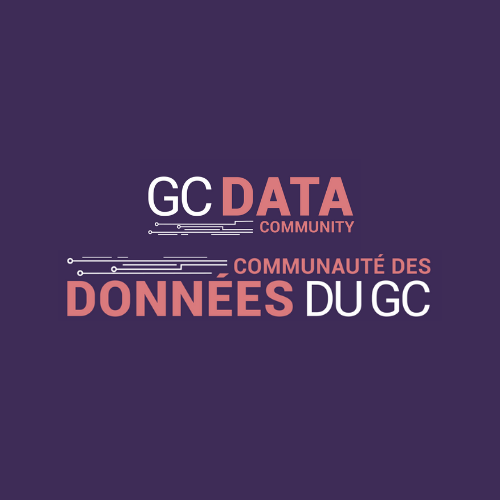
- Subscribe to the GC Data Community monthly newsletter to stay up to date with data-related news, announcements, and opportunities.
Books, reports, and articles
- Updated version of the Guide on the use of generative AI
From Treasury Board of Canada Secretariat: The guide was first published in September 2023 and provided preliminary guidance to federal institutions in their use of generative AI tools. This updated version focuses on addressing feedback from external engagement and questions raised by departments.


- On the Dangers of Stochastic Parrots: Can Language Models Be Too Big? (In English only)
From Timnit Gebru: In this paper, we take a step back and ask: How big is too big? What are the possible risks associated with this technology [natural language processing] and what paths are available for mitigating those risks?
- Datasheets for Datasets (In English only)
From Timnit Gebru: The machine learning community has no standardized way to document how and why a dataset was created, what information it contains, what tasks it should and should not be used for, and whether it might raise any ethical or legal concerns. To address this gap, we propose the concept of datasheets for datasets.

- First Languages AI Reality (FLAIR) Initiative
From Michael Running Wolf: Nearly 50% of the world’s Indigenous and about 90% of North American languages are endangered, according to UNESCO. To stem this loss, Indigenous communities need a game-changing approach to language education. The First Languages AI Reality (FLAIR) initiative is being created to enable the next chapter in Indigenous language reclamation thanks to the use of advanced immersive AI technology.
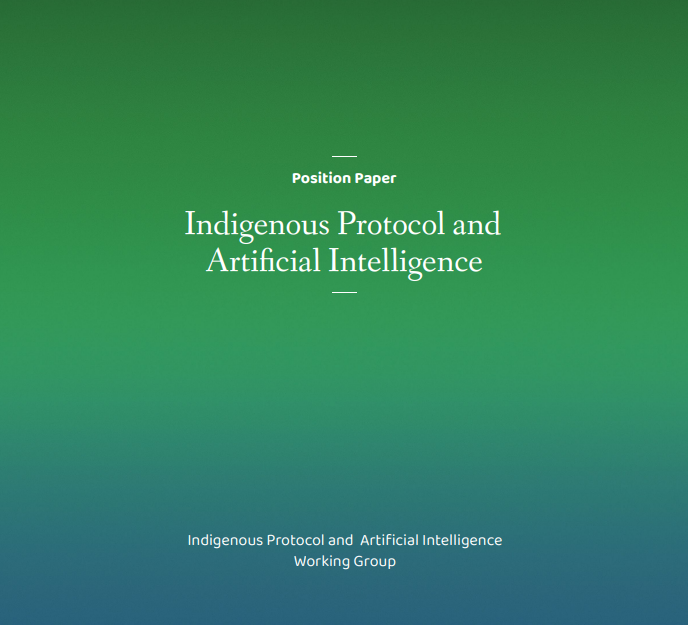
- Indigenous Protocol and Artificial Intelligence position paper (in English only)
The position paper on Indigenous Protocol and Artificial Intelligence (IP AI) is a starting place for those who want to design and create AI from an ethical position that centers Indigenous concerns.
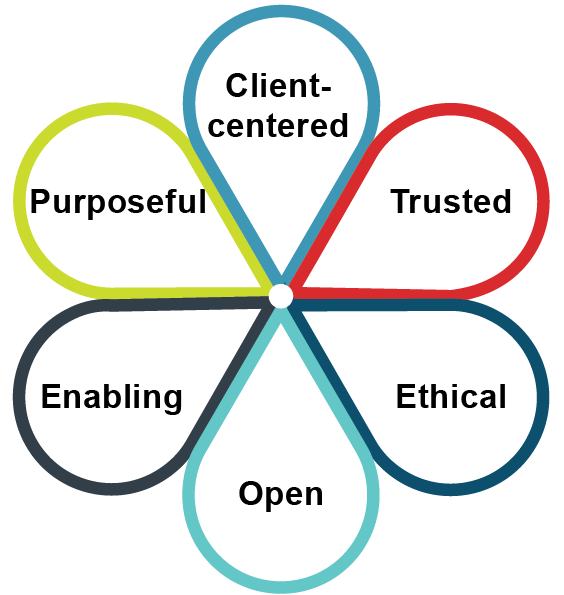
- 2023-2026 Data Strategy for the Federal Public Service
The strategy sets priorities, goals, and expectations for the strategic use of data by the federal public service to strengthen data-driven results and improve outcomes for Canadians.
- Canada’s got AI talent. Let’s keep it here
From Elissa Strome: This article in Policy Options explores how Canada should mobilize its strengths – great people with great ideas – and support them with the tools they need to bring their advances to the world, to make Canada’s brand of responsible AI a dominant force shaping the future of this technology.
- Directive on Automated Decision-Making
From Treasury Board of Canada Secretariat: The objective of this directive is to ensure that automated decision systems are deployed in a manner that reduces risks to clients, federal institutions and Canadian society, and leads to more efficient, accurate, consistent and interpretable decisions made pursuant to Canadian law.
- Algorithmic Impact Assessment tool
The Algorithmic Impact Assessment (AIA) is a mandatory risk assessment tool intended to support the Treasury Board’s Directive on Automated Decision-Making.
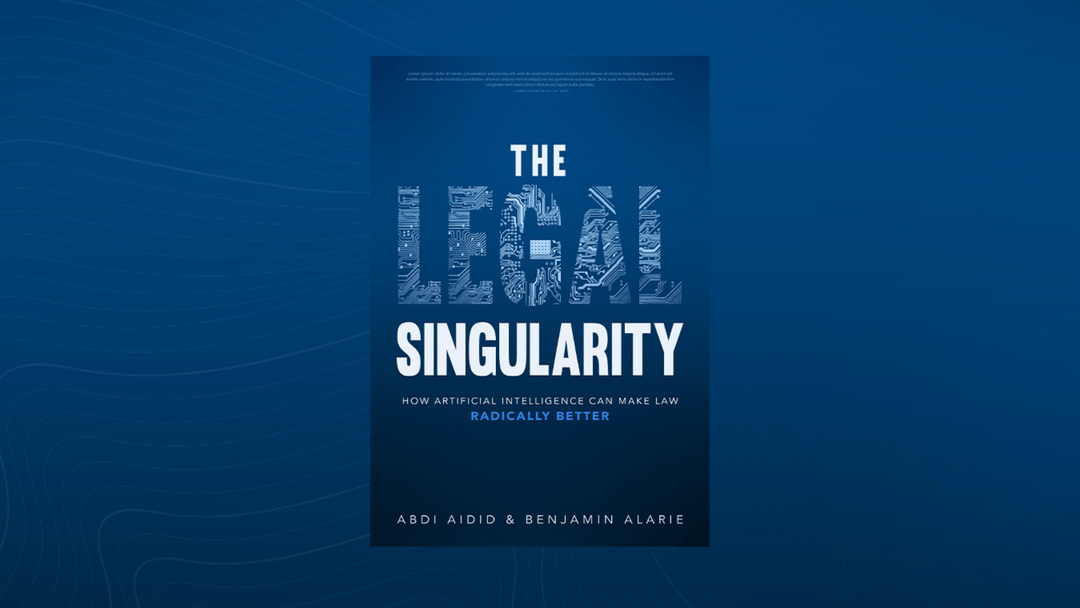
- The Legal Singularity: How artificial intelligence can make law radically better by Abdi Aidid and Benjamin Alarie (in English only)
The legal singularity reflects the development of our legal system and its evolution to becoming more complete and accessible through advanced technology.
- The Artificial Intelligence and Data Act (AIDA) – Companion document
The framework proposed in the AIDA is the first step towards a new regulatory system designed to guide AI innovation in a positive direction, and to encourage the responsible adoption of AI technologies by Canadians and Canadian businesses.
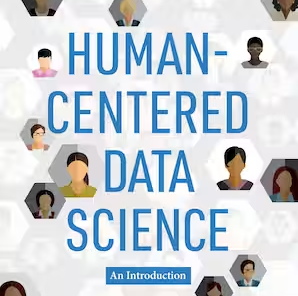
- Human-Centered Data Science: An Introduction by Cecilia Aragon, Shion Guha, Marina Kogan, Michael Muller and Gina Neff (in English only)
Best practices for addressing the bias and inequality that may result from the automated collection, analysis, and distribution of large datasets. Human-centered data science is a new interdisciplinary field that draws from human-computer interaction, social science, statistics, and computational techniques.
- AI Accelerator for the Government of Canada
From Yvan Gauthier: The AI Accelerator is a new service that helps Government of Canada departments and agencies harness the power of artificial intelligence (AI).
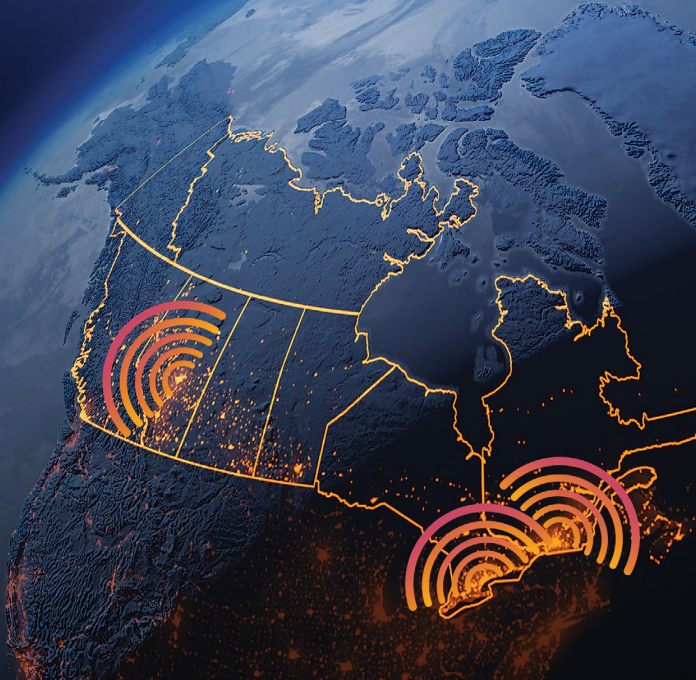
- AICan: The impact of the Pan-Canadian AI Strategy
Through the Pan-Canadian AI Strategy at Canadian Institute for Advanced Research (CIFAR), Canada has established a strong national AI ecosystem of talent and partnerships. This is truly the time for Canada to lead the world in the responsible development and use of this transformative technology.
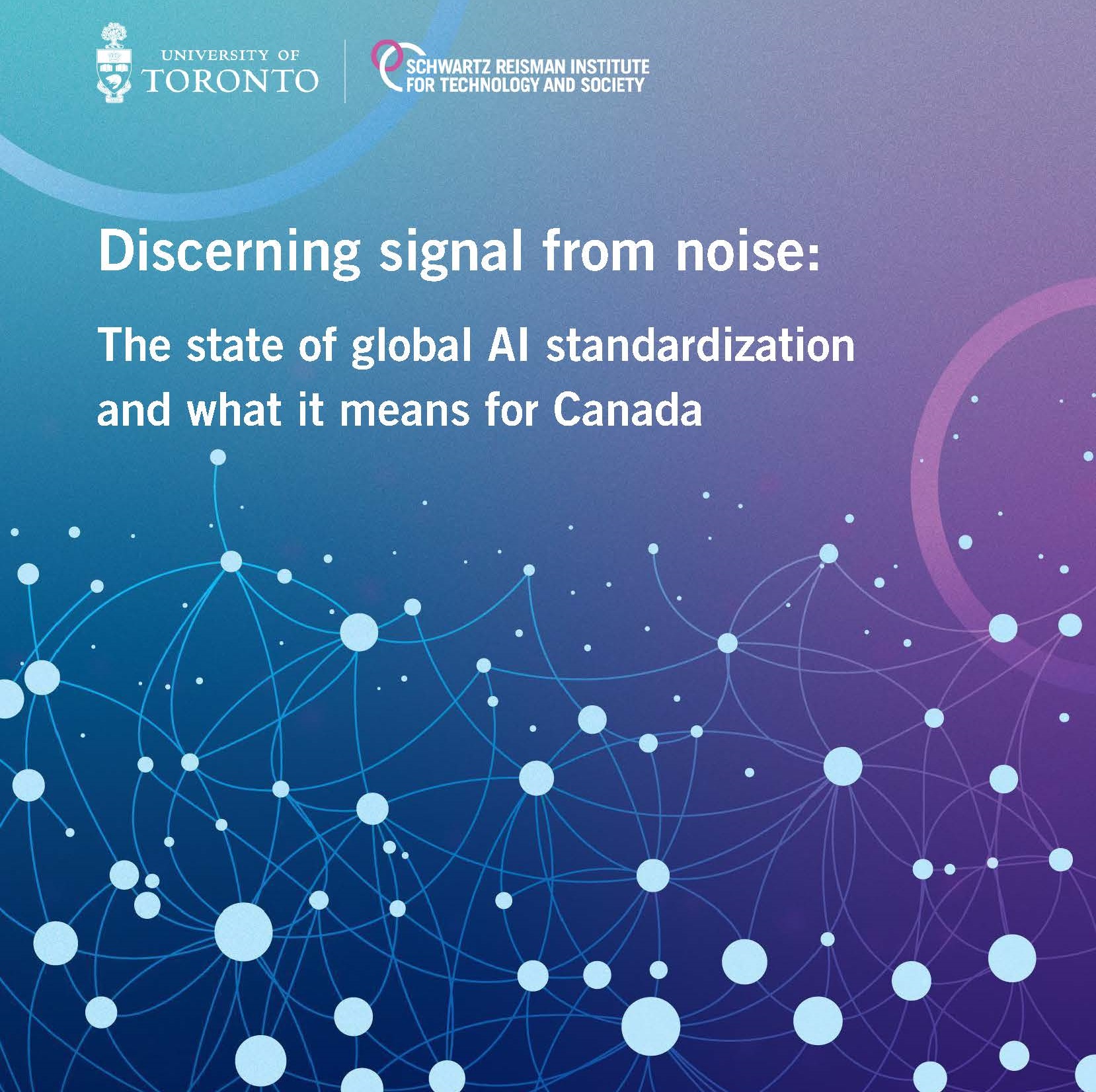
- Discerning signal from noise: The state of global AI standardization and what it means for Canada
This white paper aims to equip the Standards Council of Canada’s (SCC) AI and Data Governance Standardization Collaborative (Collaborative) with the information necessary to understand how best to leverage artificial intelligence (AI) standards and conformity assessment (as well as various assurance techniques mentioned hereafter) to advance Canada’s interests in this space, both at home and abroad.
Learning
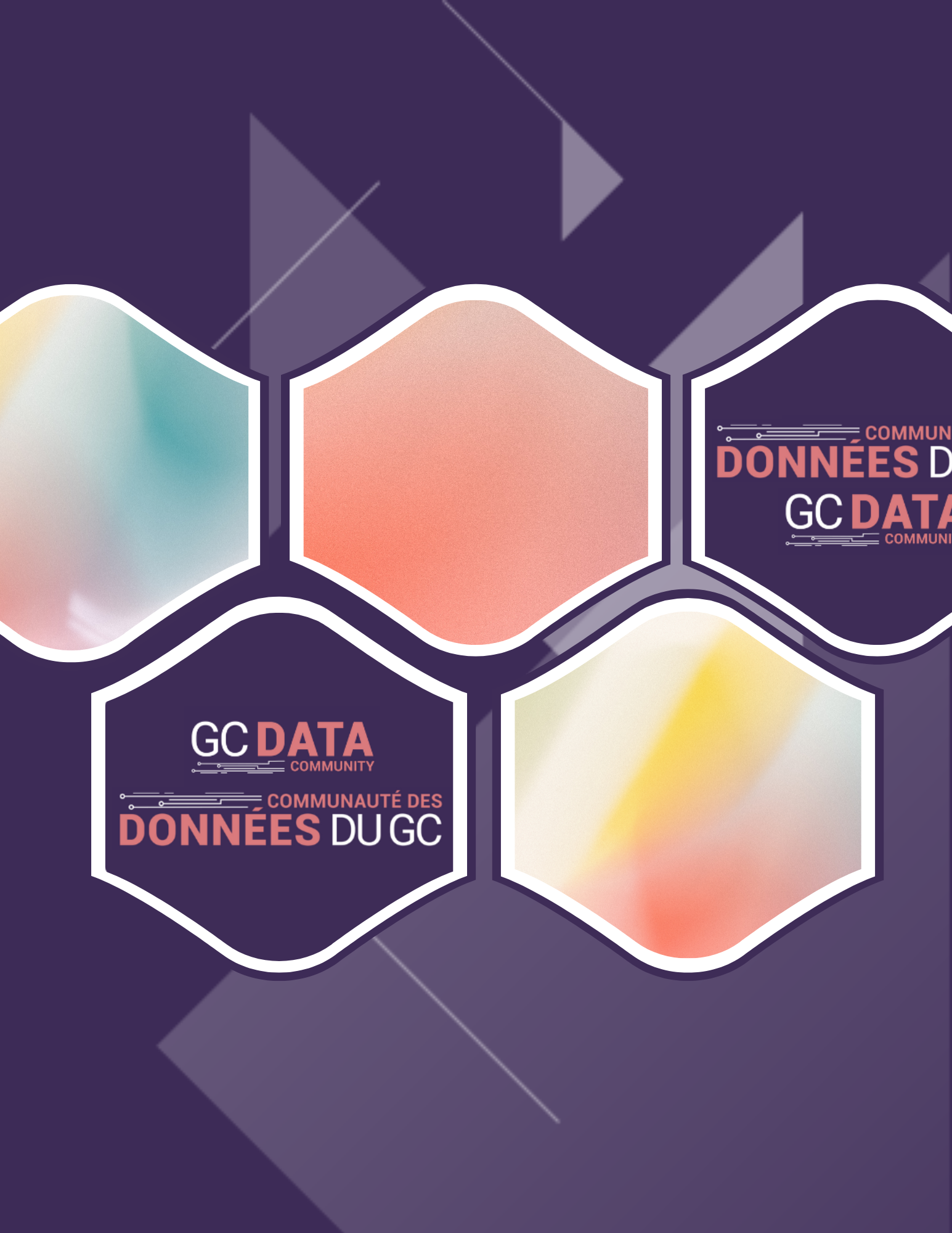
- Government of Canada Data Competency Framework
From GC Data Community: This job aid presents a common framework for understanding the foundational, intermediate, and advanced data competencies applicable across the federal government.
- Data Resources Hub
From the GC Data Community: The Data Resources Hub was created to provide data-related resources for public servants across the Government of Canada. It includes the Data Learning Library, which contains resources that enhance data-related skills, such as analytics and ethics; and the Data Toolkits Catalogue, containing information concerning the acquisition, management, and use of data-related hardware, storage, software, and programs.
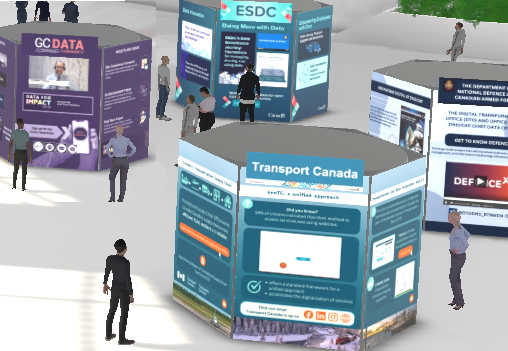
- Virtual kiosks
From GC Data Community partners: Visit virtual kiosks to learn about key data-related projects or initiatives from organizations across the Government of Canada! These virtual kiosks were created by GC Data Community partners to showcase what they are working on. They are also featured in the GC Data Conference 2024 virtual exhibit area.
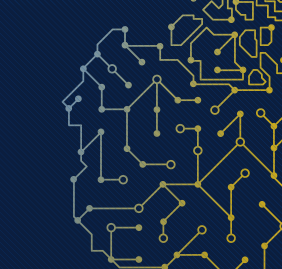
- Discover more about data 2023
From the GC Data Community: The “Discover more about data 2023” page features resources related to the 2023 GC Data Conference, including presentations from Gerry McGovern, and the Data strategy renewal panel.
- Introduction to Data in the Public Service
May 8, 1:30 to 3:30 pm (ET) – French session. From the Canada School of Public Service: This course uses a peer-learning approach to explore the strategic issues related to the role and use of data in the public service in a non-technical way. Participants will have opportunities to share their awareness of and involvement in data issues, regardless of their level or comfort with the data for which they are responsible.
- Using Generative AI in the Government of Canada
Various dates. From the Canada School of Public Service: This course complements the government’s recent Guide on the use of Generative AI by explaining the primary considerations when using generative AI tools, including the importance of using inclusive language, commands and prompts. Participants will build the essential skills needed to make the most of this transformative technology by learning from specialists already working in this area.
- Discover Artificial Intelligence
From the Canada School of Public Service: This online self-paced course introduces the core concepts and common uses of AI, along with the guiding principles and key policy mechanisms for its responsible use. Participants will learn to better understand AI and will discover how it can potentially serve to support the Government of Canada’s various mandates, programs and services.
- Ethical Considerations in Artificial Intelligence
From the Canada School of Public Service: This online self-paced course provides a walkthrough of the definitions, ethical considerations, and the application of algorithms to automate the decision-making process. Participants will review some of the current implications of AI use in government and discover examples of some of the current challenges and potential solutions.

- Artificial Intelligence Is Here Series
From the Canada School of Public Service: Offered in partnership with the Schwartz Reisman Institute for Technology and Society, this event series will explore the foundations and future directions of artificial intelligence (AI) and its implications on the work Canadian public servants perform. Topics covered in this series include key concepts and terminology in AI, legal and regulatory systems considerations, and the risks and opportunities of AI.
- Inspiring Action Through Compelling and Data-Driven Storytelling
From the Canada School of Public Service: This online self-paced course provides instructions on how to build a compelling, data-driven story that adequately addresses a framed problem and inspires action. Participants will learn to create an effective storyboard, define a call to action, and incorporate the key components of a compelling story.
- The Design Process: Qualitative Data Synthesis
From the Canada School of Public Service: This online self-paced course presents practical methods for organizing, analyzing and synthesizing qualitative data to identify patterns and trends, validate assumptions, and draw useful insights. Participants will learn the best methods for creating and organizing data artifacts when synthesizing the data from their research.
Are we missing something? Send us the details: gcdc-cdgc@csps-efpc.gc.ca